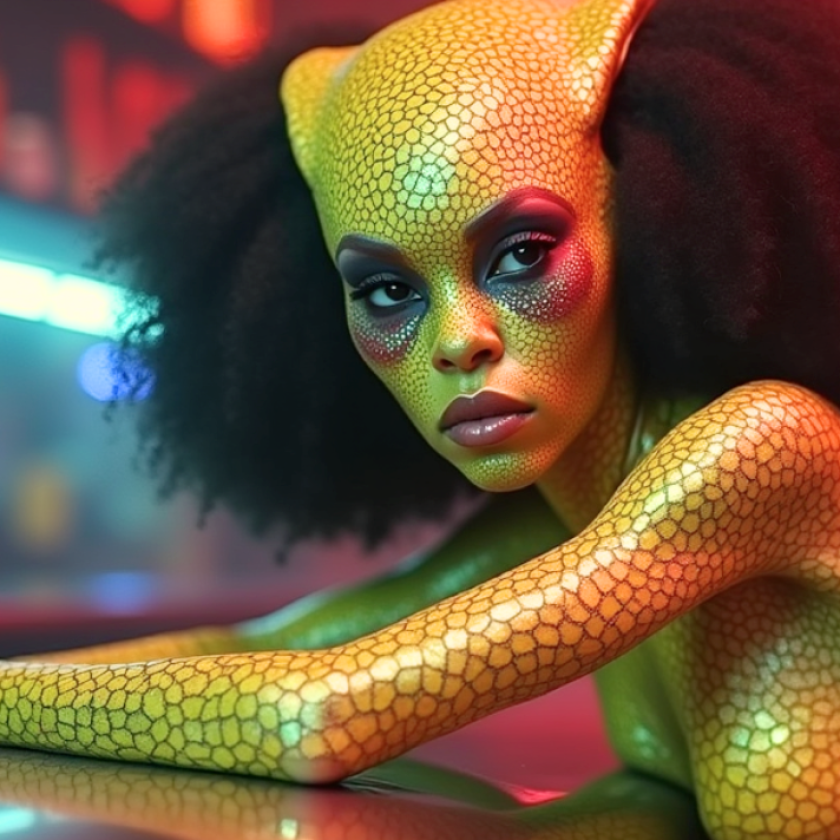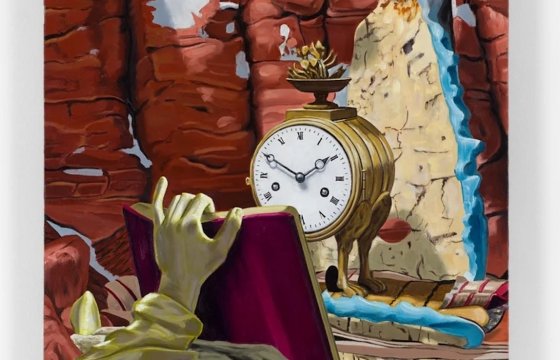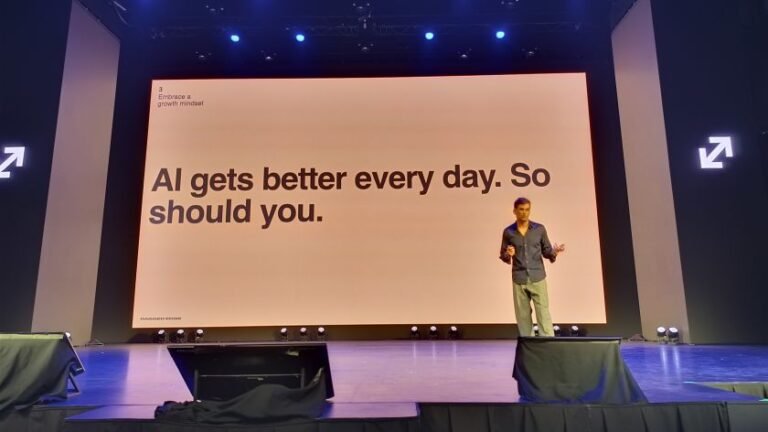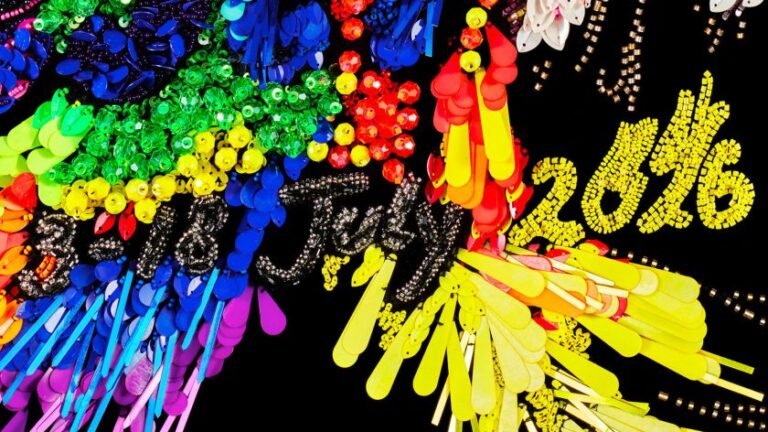

Still from a music video made by Diane Laidlaw (ie Afro Futcha).
A pair of friends launched this side project to help the creative community, not sell you software. Read on to learn why this AI contest is different from the rest.
Let’s be honest, AI contests are everywhere right now. But who’s organising them? Most of the time, it’s the AI companies themselves. Which, rightly or wrongly, makes them feel more like marketing exercises rather than genuine celebrations of craft. The Bionic Awards, though, feels different.
Founded by Alex Pell, technology editor at The London Standard, and Andy Gordon, an award-winning film producer who’s created campaigns for Google and Coca-Cola, Bionic emerged from a specific moment. Whilst chairing London Tech Week 2024, Alex noticed the ‘doom vs boom’ levels of panic and excitement among creatives, and realised the community needed support, not sales pitches.
I met Alex and Andy last week at Upscale—an AI conference in Málaga, Spain, organised by Freepik, and got swept up with their passion and enthusiasm for the project. So while I’ve always been super-cautious of people touting the ‘next big thing’ (whether that’s the metaverse, blockchain or, now, AI), this grass-roots project caught my attention.
Why it stands out
While this is a passion project, it’s backed by serious ambition: to create world-class events and build a global community that genuinely helps creatives. “Our vision is for The Bionic Awards to be the European equivalent of The Webbys and spotlight exceptional creators in the AI era,” Alex explains.
More specifically, it’s aimed to help people worried about losing their jobs whilst being curious about new possibilities. As a result, entry costs are deliberately kept low, and the overall ethos is focused on practitioners rather than making a profit.
“I won a Webby Award ten years ago,” reflects Alex. “They said we could attend to collect our prize, but only say five words on stage, and also that a second trophy, for my partner, would cost us £400. Bionic is much more inclusive, and our ethos is ‘creators first’. The goal is to give creatives the visibility and connections to succeed as the industry evolves.”
He’s keen to note the judging panel includes people actually making things with AI. Brandon Baum is Europe’s leading AI creator with 25 million followers. Jens Christensen, director of post-production at Pinewood Studios. Ryan Phillips (aka Uncanny Harry), regarded as the UK’s leading AI filmmaker, was recently signed by Hollywood-based studio Promise.
Then there’s Alvaro Corrochano, head of virtual production at Hogarth | WPP; Pedro Oliver, senior creative for The Coca-Cola Company at Studio X and; and Jo Wallace, global executive creative director at Jellyfish. All people working at the sharp end of creative evolution.

The story of another judge, influencer Afro Futcha aka Diane Laidlaw, encapsulates what Bionic represents. “I was a web designer for 15 years and did not have the opportunity to retrain in film,” she explains. “But AI has unlocked the door for me to become a filmmaker.” That’s lived experience, not corporate rhetoric.
London roots, global reach
Bionic launches with London roots but global ambitions. The inaugural AI Creator Showcase takes place at Rich Mix in Shoreditch on 4 December, entries close on 30 December, and the main awards are held on 5 March 2026. The timeline reflects how fast creative AI is moving. As Alex frames it: “The tide has turned on conventional creativity. You can ignore reality and wait for the waves to find you, or learn to swim.”
If you’re suspicious of AI, Bionic won’t try to convert you. If you’re intrigued, though, you’ll find a community exploring similar questions without breathless hype.
Entries need to demonstrate “meaningful use of generative video” whilst remaining platform-neutral. In other words, whether you’re using Runway, Pika, or Google Veo matters less than what you’re making.
With 12 categories spanning storytelling in ads, art installations, digital-out-of-home (DOOH), and more, Bionic supports many types of creative work. It’s worth noting that the awards don’t just embrace purely GenAI films but also hybrid workflows, such as using AI for VFX or to enhance onscreen human presence. The focus stays on output, not tools.

The shortlisted entries will screen publicly at cinema venues. Solo creators will sit alongside agency teams; independent films next to branded campaigns. The low barrier to entry means you’ll be exploring alongside other professionals navigating the same uncertain terrain, not competing primarily against well-resourced studios.
Worthy of attention
Don’t read this as AI boosterism. Every creative professional faces a decision right now about whether and how to engage with AI, and it’s not for me to tell you what that decision should be. But if you are intrigued, Bionic offers a platform created by people who understand both the promise and the stakes… without financial incentives to push you toward particular conclusions.
In other words, if you want to see what creatives are genuinely doing with AI, rather than what AI companies say they should be doing, this deserves your attention.
Find out more at bionicawards.com, or get tickets for the 4 December AI Creator Showcase at Rich Mix.


